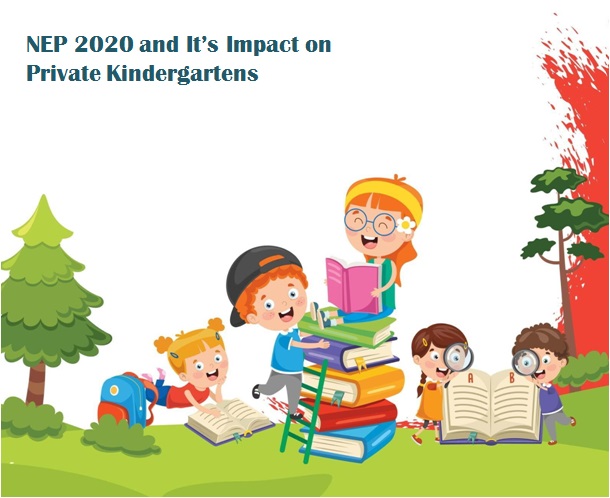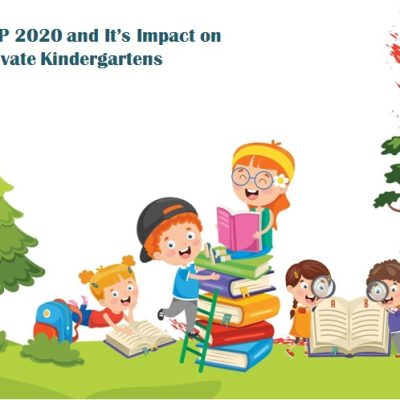The National Education Policy of India 2020 (NEP 2020) stands as a pivotal milestone in the country’s educational framework. It has instituted substantive and pragmatic changes in our pedagogical methodologies, aimed at equipping our Children, with the essential 21st-century skills critical for success in their life and forthcoming endeavours.
NEP 2020 changes extend its impact to the crucial early childhood years, particularly in the kindergarten sector. With a focus on holistic development it advocates for a play-based and activity-oriented approach to learning in the formative years of a child’s education.
The policy recognizes the significance of early childhood care and education, emphasizing the need for integrated curricula that promote cognitive, socio-emotional, and physical development. NEP 2020 envisions the creation of vibrant, stimulating learning environments for young children, fostering creativity and critical thinking from the very beginning of their educational journey.
It is important to note that while providing a broad national framework, NEP 2020 allows flexibility for states to adapt guidelines to their specific contexts. This decentralization aims to address regional diversity and cater to local needs, ensuring that regulations align with the cultural and linguistic diversity across the country.
Moreover, NEP 2020 encourages the training and capacity-building of educators in the kindergarten sector, promoting a skilled workforce capable of implementing the innovative pedagogical methods outlined in the policy. By integrating early childhood education into the broader education system, NEP 2020 sets the stage for a more inclusive and comprehensive approach to nurturing the future citizens of India.
While NEP 2020 provides a broad framework, specific regulations for the kindergarten sector may vary across states and regions, as education is a concurrent subject in India, meaning both the central and state governments have roles in policy and regulation. It’s essential to refer to state-specific guidelines to understand the regulations governing kindergartens in a particular area. Private kindergartens must anticipate increased involvement from education departments in the forthcoming academic year and beyond. This heightened participation is intended to enhance regulatory oversight, particularly concerning the accreditation of private kindergartens (KG), setting standards for minimum facilities, and delineating curriculum requirements. Embracing this initiative is crucial, as it aims to contribute to the overall enhancement of the education system. Private kindergartens can proactively address these challenges by adopting a preparedness approach in advance.





